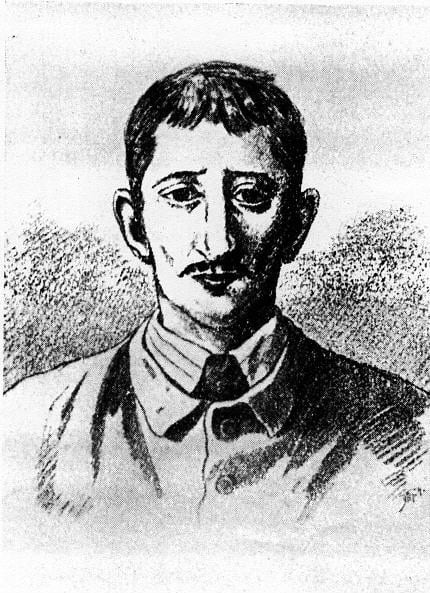Zajímavé, děkuji za článek.
12 September 1899 The trial of Leopold Hilsner began
Categories: Personalities , Calendar
 The court in Kutná Hora sent Leopold Hilsner to the gallows for the ritual murder of Anežka Hrůzová. The trial began in September 1899. Masaryk himself became involved in the case, alienating students, colleagues and acquaintances. On 29.
The court in Kutná Hora sent Leopold Hilsner to the gallows for the ritual murder of Anežka Hrůzová. The trial began in September 1899. Masaryk himself became involved in the case, alienating students, colleagues and acquaintances. On 29.
March 1899, a nineteen-year-old Christian girl, Anežka Hrůzová, was found murdered near Polná in the forested area of the Highlands, a few kilometres from Žďár nad Sázavou. "The murderer had cut the girl, so she bled to death. It was during Easter, which is celebrated by Jews as the holiday of Passover, and therefore the assumption of ritual murder was born," writes Karel Pacner in his book Fatal Moments of the 20th Century.
The perpetrator was identified as a member of the Jewish community, the worker Leopold Hilsner, who, together with two alleged accomplices, was accused of a ritual murder in which the victim's blood was to be drained. Hilsner's trial began on 12 September 1899 in Kutná Hora. On the basis of circumstantial evidence, the tribunal sent the Jewish young man to the gallows. For the bailiffs, Hilsner was a textbook offender.
Masaryk was initially uninterested in the case, but was visited by a former student from Vienna, Sigmund Münz, asking what he thought of the Polen murder. Masaryk later wrote a private letter to Münz in which he clearly opposed the whole case and agreed to publish the letter in the Viennese newspaper Neue Freie Presse. No sooner had this been done than attacks were launched against Masaryk by Viennese anti-Semites, Czech clericals and many Czech personalities.
"Masaryk was then a professor at Charles University. He was one of the few to oppose the verdict. But many students, friends and colleagues turned away from him because of it. However, it was Masaryk and new expert opinions that contributed to the reversal of the verdict," Richter adds.
Professor Masaryk was not idle and went to Polná to map the situation on the spot, and while still on the train he managed to study a paper on criminalistics. He was opposed not only by the majority of society, including journalistic circles, but also by his students, which he took very badly. Provocateurs began to attend his lectures and tried to shout Masaryk down so that he would not get the floor and be able to present his arguments in Hilsner's favour.
However, another court, relying on testimony that was apparently fabricated, upheld the throat punishment. Fortunately, Emperor Franz Joseph I.., who sensed the anti-Semitic overtones, commuted it to life imprisonment and his successor, Charles I, released the young man from prison.
Sources, Karel Pacner, Fateful Moments of the 20th Century
www.wikipeda.org
The article is included in categories:










